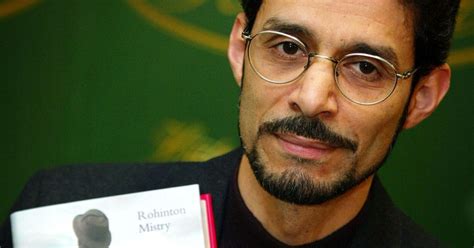A Quote by Raphael Bob-Waksberg
I don't know if that's the best story for BoJack, long-term. I do love the world, and I love playing around in it and it feels like an elastic enough world that, any story I want to tell, I can tell about these characters in this world. I can talk about parents and children, husbands and wives, the troops, or Hollywood. It does feel like an endless playground at this point, it would be a shame if we cut it off early for fear of repeating the same things over and over again. But I am looking to move the story and character somewhat.
Quote Topics
About
Again
Am
Any
Around
Best
Character
Characters
Children
Cut
Does
Early
Elastic
Endless
Enough
Fear
Feel
Feels
Hollywood
Husbands
Know
Like
Long
Long-Term
Looking
Love
Move
Off
Over
Parents
Playground
Playing
Playing Around
Point
Repeating
Same
Same Thing
Same Things
Shame
Somewhat
Story
Talk
Tell
Term
Things
This World
Troops
Want
Wives
World
Would
Would Be
Related Quotes
I am wary of repeating myself too much. In this age of Netflix, as a Netflix show, if you want to go back and watch a season 1 episode, you can do that easily. I'm not interested in repeating the same story beats over and over and over again. But part of the truth of BoJack story is about how much he repeats himself and these patterns that are difficult to get out of. I'm trying not to be evasive about that. I'm not using that as an excuse. I think that's convenient to fall back on as a TV writer: "Oh, it's a show about stagnation."
I once wrote a short story called 'The Best Blues Singer in the World,' and it went like this: 'The streets that Balboa walked were his own private ocean, and Balboa was drowning.' End of story. That says it all. Nothing else to say. I've been rewriting that same story over and over again. All my plays are rewriting that same story.
It's only a story, you say. So it is, and the rest of life with it - creation story, love story, horror, crime, the strange story of you and I. The alphabet of my DNA shapes certain words, but the story is not told. I have to tell it myself. What is it that I have to tell myself again and again? That there is always a new beginning, a different end. I can change the story. I am the story. Begin.
The best time to tell your story is when you have to tell your story. When it's not really a choice. But then, when you get that first, messy, complicated version down, you have to read it over and be very tough on yourself and ask, 'Well what's the story here?' If you're lucky enough to have someone you trust looking over your shoulder, he or she can help you if [you] lack perspective on your own story.
Words are alive--when I've found a story that I love, I read it again and again, like playing a favorite song over and over. Reading isn't passive--I enter the story with the characters, breathe their air, feel their frustrations, scream at them to stop when they're about to do something stupid, cry with them, laugh with them. Reading for me, is spending time with a friend. A book is a friend. You can never have too many.
One of the remarkable qualities of the story is that it creates space. We can dwell in a story, walk around, find our own place. The story confronts but does not oppress; the story inspires but does not manipulate. The story invites us to an encounter, a dialogue, a mutual sharing. As long as we have stories to tell to each other there is hope. As long as we can remind each other of the lives of men and women in whom the love of God becomes manifest, there is reason to move forward to new land in which new stories are hidden.
You have to do three things really well to make a successful film. You have to tell a compelling story that has a story that is unpredictable, that keeps people on the edge of their seat where they can't wait to see what happens next. You then populate that story with really memorable and appealing characters. And then, you put that story and those characters in a believable world, not realistic but believable for the story that you're telling.
Perhaps there's another, much larger story behind the printed one, a story that changes just as our own world does. And the letters on the page tell us only as much as we'd see peering through a keyhole. Perhaps the story in the book is just the lid on a pan: It always stays the same, but underneath there's a whole world that goes on - developing and changing like our own world.
If you have to tell a story without speaking, it's sort of like - I come from a dance background, so it's like a ballet where you have to tell a story with just your body. I think that's really interesting to have to tell a story with just your face and your mannerisms, and I'd like to tap into that world.
Everyone underestimates their own life. Funny thing is, in the end, all our stories...they're the same. In fact, no matter where you go in the world, there is only one important story: of youth, loss and yearning for redemption. So we tell the same story, over and over. Only the details are different.
I would say plotting is the most difficult thing for me. Characterization is only hard because sometimes I feel I get so interested in it that I want to talk too much about the characters and that slows the story down. So I say, "Hey, people want to find out what's going to happen next, they don't want to listen to you spout off about this or that person." But I think even the bad guy deserves to tell his side of the story.

































